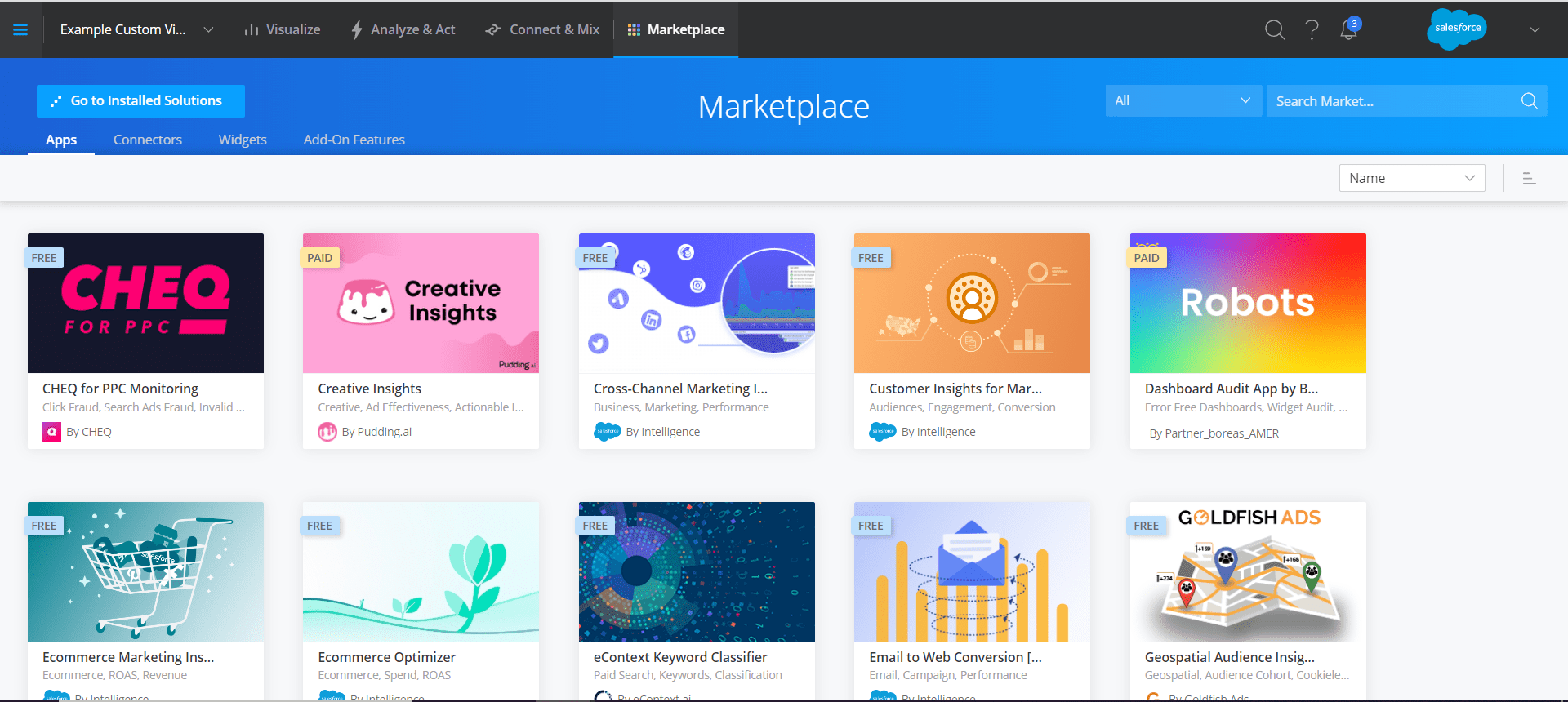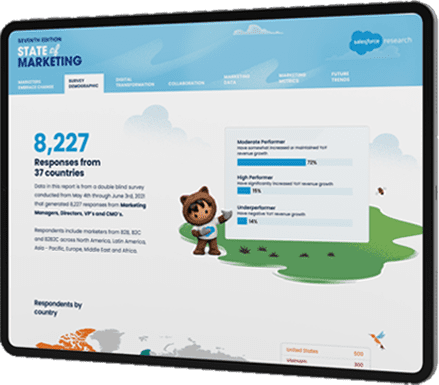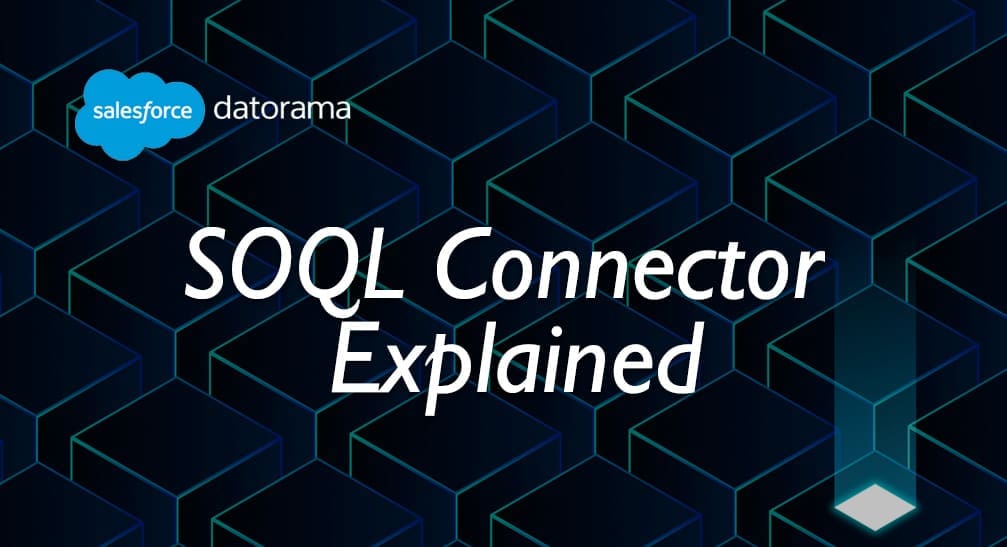Salesforce Data Cloud, formerly known as Salesforce CDP, and Marketing Cloud Intelligence, formerly known as Datorama are components of the Salesforce Marketing Cloud ecosystem. Despite similar marketing language and familiar data management capabilities, they serve different purposes. Both platforms, ingest, harmonize, and analyze batched or streamed data, but there are key differences. Salesforce has provided two platforms that improve data productivity, but what are the differences?
Let us take a closer look at each of these platforms and examine the use cases and important features each provides.
Salesforce Data Cloud:

-
- Purpose: Salesforce Data Cloud is a vast data marketplace that provides access to a wide range of third-party data sources. It allows companies to enrich their customer data with additional information from various providers, such as demographic data, purchase history, browsing behavior, and more.
- Data Integration: Salesforce Data Cloud integrates with Salesforce CRM and other Salesforce products, making it easier for businesses to combine their existing data with external data sets. Apart from this, Data Cloud can also ingest data from any other source via custom APIs or other technical integration vendors.
Standardized Connectors include:
-
- Azure Storage Connector
- B2C Commerce Connector
- Amazon S3
- Google Cloud
- Ingestion API
- Interaction Studio Connector
- Marketing Cloud Connector
- Mulesoft Anypoint Connector
- Salesforce CRM Connector
- Salesforce Interaction SDK
- Web and Mobile Application Connector
- Data Modelling: Data Cloud’s standard data model helps with the interoperability of data across applications. The Customer 360 Data Model reduces the complexities of integrating data across cloud applications by providing standardized data interoperability guidelines. It can be adopted and extended to create data lakes, generate analytics, train machine learning models, build a single view of the customer and more.
- Use Cases: The primary use of Salesforce Data Cloud is to enhance customer profiles, gain insights into target audiences, and enable more personalized and targeted marketing efforts.
- Identify Unification: Mainly known as Identity Resolution, it is the process of consolidating customer transactions, addressable identities, and interactions captured across every (measurable) touchpoint, platform, and channel, and then housed under a unified customer profile. This is often done to improve targeting, segmentation, personalization, or media activation under privacy safe guidelines.
Marketing Cloud Intelligence:

- Purpose: Marketing Cloud Intelligence is a marketing intelligence platform that focuses on data visualization, analytics, and reporting. It allows marketers to consolidate data from various channels and sources, providing actionable insights for better decision-making.
- Data Integration: Marketing Cloud Intelligence can connect with a wide range of marketing platforms, such as social media, advertising networks, email marketing services, and more, to aggregate data from multiple sources.
- Data Modelling: To enable users to standardize data across the various sources that data can be pulled through, MCI has created a data model that emulates the structure found across different channels and types of data. This data model adheres to the basic structure found across marketing data but also enables users to create their own models and relationships.
- Automated Reporting: MCI makes it possible to ingest data from any number of online and offline data sources. The platform allows the use of native API connections and Total Connect to onboard, harmonize, visualize and ultimately, automate data feeds, workflows, reports, and dashboards, speeding up the time to value, optimization and insights.
- Data Visualization: The platform offers robust data visualization capabilities, allowing users to create interactive dashboards and reports to gain a comprehensive view of marketing performance across channels.
- AI-powered Insights: Marketing Cloud Intelligence utilizes artificial intelligence and machine learning algorithms to automatically identify patterns, trends, and anomalies within the data, helping marketers make data-driven decisions.
In summary, while Salesforce Data Cloud is focused on data management, identity, audience segmentation, and integrating data within Salesforce CRM. Marketing Cloud Intelligence provides the ability to integrate data, assign appropriate metrics, define goals, visualize performance, and measure the impact of marketing.
Fortunately, as first party data ingestion, unification and personalization are used in secure, privacy compliant methods, Salesforce continues to provide credible Marketing solutions that scale for publishers, advertisers and agencies. Marketing Cloud Intelligence and Data Cloud are helpful tools to improve data productivity, but the latter extends that value through personalization, identity management, relationship building and activation. In the future, look for both solutions to be further integrated with Generative AI, Tableau, CRM and Einstein.
About Decision Foundry
Decision Foundry is a Salesforce, independent software vendor, managed services provider, and a certified award-winning Salesforce Marketing Cloud integration partner. Decision Foundry closes the gap between data accessibility, platform adoption and business impact. Our consulting services include the integration of Data Cloud, Account, Engagement, Personalization, Tableau, and Intelligence.




